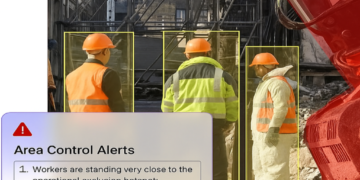The world of psychiatry is about being attentive when your patients speak. It is about connecting with them, understanding what is bothering them or bringing them peace, and building trust. But for most psychiatrists, the burden of taking notes and other administrative tasks like documentation is a big source of distraction. This aspect of their job often takes up their precious time that could otherwise have been dedicated to taking better care of their patients.
This is where mental health clinical documentation software is playing a crucial role in changing the traditional way in psychiatric care.
Documentation & Patient Care
For those that work in the field of mental health, detailing is of the biggest essence. Every detail of their patient need to be minutely recorded – nothing can be missed. In such a context, clinicians have to be particularly careful in capturing complex patient histories, evolving symptoms, and treatment progress.
In the traditional format, this can mean clinicians spending most of the time of patient interactions and after in lengthy note-taking and manually updating electronic health records.
Mental health clinical documentation software helps automate the entire process. The software feature structured templates, integrated treatment plans, and secured storage for progress notes.
The upfront advantage is faster documentation. Additionally, the software also helps preserve clinical accuracy, another critically significant aspect of patient care in psychiatry.
The Rise of AI Medical Dictation
Another innovation that has immense promise is AI medical dictation. In this case, notes are not typed. The software transcribes conversations, allowing psychiatrists to speak naturally. Conversations are structured in a particular manner, ensuring compliance with international standards. This is an efficient way of recording conversations and saving every patient interaction. Errors are reduced. With lesser burden of administrative work, clinicians can significantly save time, they are not as fatigued, and look forward to better work–life balance.
Improved Patient Engagement
With lesser time spent on a computer to type patient interactions mean the clinician can make more eye contact with their patients, listen attentively, ask questions, delve deep into the causes of mental issues, and build trust with their patients.
An integrated tool like AI medical dictation support psychiatrists in remaining present in the moment and there is no break in the flow of conversation, especially when the patient is speaking their heart out. This enhances trust and allows for a more therapeutic, patient-focused experience.
Supporting the Shift to Tele psychiatry
As telehealth becomes a crucial aspect of patient care, documentation needs should evolve too. Modern mental health clinical documentation software can be integrated smoothly with virtual care platforms. This ensures psychiatrists can securely record and manage patient notes even during remote sessions. Backed by AI-powered dictation, the workflow becomes consistent and relevant.
Psychiatric treatment today can be the most effective when human empathy is balanced with technology. Mental health clinical documentation software can take help create that balance and also by reducing administrative overload, it promotes quality work-life for the psychiatrist and best outcomes for the patient.

















